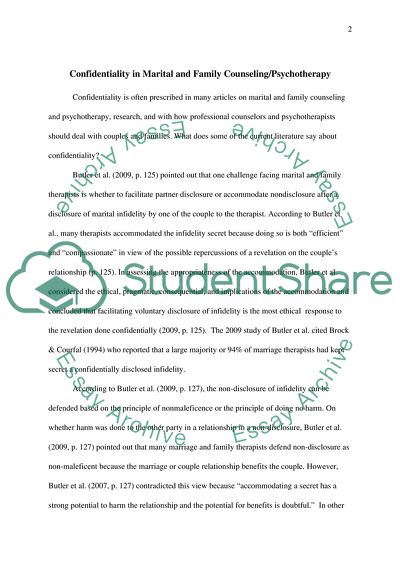Cite this document
(Confidentiality in Marital and Family Counseling Essay Example | Topics and Well Written Essays - 1250 words - 1, n.d.)
Confidentiality in Marital and Family Counseling Essay Example | Topics and Well Written Essays - 1250 words - 1. https://studentshare.org/psychology/1754699-confidentiality-in-marital-and-family-counselingpsychotherapy
Confidentiality in Marital and Family Counseling Essay Example | Topics and Well Written Essays - 1250 words - 1. https://studentshare.org/psychology/1754699-confidentiality-in-marital-and-family-counselingpsychotherapy
(Confidentiality in Marital and Family Counseling Essay Example | Topics and Well Written Essays - 1250 Words - 1)
Confidentiality in Marital and Family Counseling Essay Example | Topics and Well Written Essays - 1250 Words - 1. https://studentshare.org/psychology/1754699-confidentiality-in-marital-and-family-counselingpsychotherapy.
Confidentiality in Marital and Family Counseling Essay Example | Topics and Well Written Essays - 1250 Words - 1. https://studentshare.org/psychology/1754699-confidentiality-in-marital-and-family-counselingpsychotherapy.
“Confidentiality in Marital and Family Counseling Essay Example | Topics and Well Written Essays - 1250 Words - 1”. https://studentshare.org/psychology/1754699-confidentiality-in-marital-and-family-counselingpsychotherapy.


